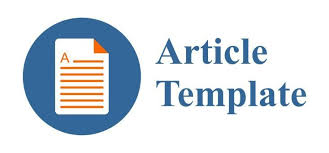STRATEGIES FOR EFFECTIVE ONLINE EDUCATION IN THE DIGITAL AGE
Mavluda Berdimurodovna Qurtova
Uzbekistan State World Languages University
##semicolon## online education, digital learning, student engagement, accessibility, interactive learning, technology integration, diverse learners.
सार
This article explores effective strategies for teaching in the digital age, with a focus on online education. It examines the benefits and challenges of digital learning environments and offers practical methods to enhance student engagement, ensure accessibility, and maintain academic rigor. The article highlights best practices for integrating technology, fostering interactive learning, and supporting diverse learners, aiming to help educators create effective and inclusive online educational experiences.
##submission.citations##
Anderson, T. (2008). ‘The Theory and Practice of Online Learning’. Athabasca University Press.
Bates, A. W. (2019). ‘Teaching in a Digital Age: Guidelines for Designing Teaching and Learning’. Tony Bates Associates Ltd.
Garrison, D. R., & Vaughan, N. D. (2008). ‘Blended Learning in Higher Education: Framework, Principles, and Guidelines’. Jossey-Bass.
Meyer, K. A. (2014). ‘Student Engagement Online: What Works and Why’. Wiley.
Tobin, T. J., & Behling, K. T. (2018). ‘Reach Everyone, Teach Everyone: Universal Design for Learning in Higher Education’. West Virginia University Press.
Palloff, R. M., & Pratt, K. (2013). ‘Lessons from the Virtual Classroom: The Realities of Online Teaching’. Jossey-Bass.
Moore, M. G., & Kearsley, G. (2011). ‘Distance Education: A Systems View of Online Learning’. Wadsworth Cengage Learning.






